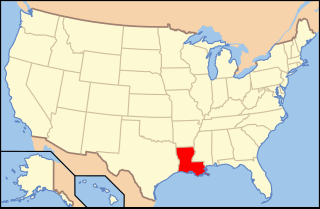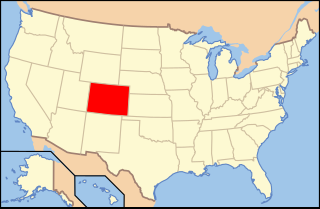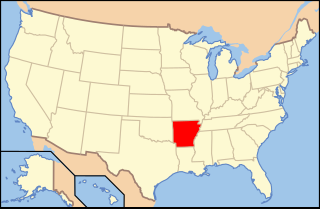See also
- Timeline of LGBT history — timeline of events from 12,000 BCE to present
- LGBT rights by country or territory — current legal status around the world
- LGBT social movements
| |||
|---|---|---|---|
| +... |
This is a list of notable events in the history of LGBT rights that took place in the year 1985.
Romer v. Evans, 517 U.S. 620 (1996), is a landmark United States Supreme Court case dealing with sexual orientation and state laws. It was the first Supreme Court case to address gay rights since Bowers v. Hardwick (1986), when the Court had held that laws criminalizing sodomy were constitutional.
Lawrence v. Texas, 539 U.S. 558 (2003), is a landmark decision of the U.S. Supreme Court in which the Court ruled that most sanctions of criminal punishment for consensual, adult non-procreative sexual activity are unconstitutional. The Court reaffirmed the concept of a "right to privacy" that earlier cases had found the U.S. Constitution provides, even though it is not explicitly enumerated. It based its ruling on the notions of personal autonomy to define one's own relationships and of American traditions of non-interference with private sexual decisions between consenting adults.
Bowers v. Hardwick, 478 U.S. 186 (1986), was a landmark decision of the U.S. Supreme Court that upheld, in a 5–4 ruling, the constitutionality of a Georgia sodomy law criminalizing oral and anal sex in private between consenting adults, in this case with respect to homosexual sodomy, though the law did not differentiate between homosexual and heterosexual sodomy. It was overturned in Lawrence v. Texas (2003), though the statute had already been struck down by the Georgia Supreme Court in 1998.
This is a list of notable events in the history of LGBT rights that took place in the year 1982.
This is a list of notable events in the history of LGBT rights that took place in the year 1986.
This is a list of notable events in the history of LGBT rights that took place in the year 1998.
This is a list of notable events in the history of LGBT rights that took place in the year 1972.

Lesbian, gay, bisexual, and transgender (LGBT) persons in Belize face legal challenges not experienced by non-LGBT citizens, although attitudes have been changing in recent years. Same-sex sexual activity was decriminalized in Belize in 2016, when the Supreme Court declared Belize's anti-sodomy law unconstitutional. Belize's constitution prohibits discrimination on the basis of sex, which Belizean courts have interpreted to include sexual orientation.

Lesbian, gay, bisexual, and transgender (LGBT) persons in the U.S. state of Louisiana may face some legal challenges not experienced by non-LGBT residents. Same-sex sexual activity is legal in Louisiana, and same-sex marriage has been recognized in the state since June 2015 as a result of the Supreme Court's decision in Obergefell v. Hodges.

Lesbian, gay, bisexual, and transgender (LGBT) persons in the U.S. state of Ohio have most of the rights non-LGBT residents have. Same-sex sexual activity is legal in Ohio, and same-sex marriage has been legally recognized since June 2015 as a result of Obergefell v. Hodges. Ohio statutes do not address discrimination on account of sexual orientation and gender identity; however, the U.S. Supreme Court's ruling in Bostock v. Clayton County established that employment discrimination against LGBT people is illegal in 2020. In addition, a number of Ohio cities have passed anti-discrimination ordinances providing protections in housing and public accommodations. Conversion therapy is also banned in a number of cities. In December 2020, a federal judge invalidated a law banning sex changes on an individual's birth certificate within Ohio.

Baker v. Wade 563 F.Supp 1121, rev'd 769 F.2nd 289 cert denied 478 US 1022 (1986) is a federal lawsuit challenging the legality of the sodomy law of the state of Texas. Plaintiff Donald Baker contended that the law violated his rights to privacy and equal protection. After a victory at trial, an appellate court reversed the lower court's decision and in the wake of its decision in Bowers v. Hardwick the Supreme Court of the United States refused to review it.

Lesbian, gay, bisexual, and transgender (LGBT) persons in the U.S. state of Colorado enjoy the same rights as non-LGBT people. Same-sex sexual activity has been legal in Colorado since 1972. Same-sex marriage has been recognized since October 2014, and the state enacted civil unions in 2013, which provide some of the rights and benefits of marriage. State law also prohibits discrimination on account of sexual orientation and gender identity in employment, housing and public accommodations and the use of conversion therapy on minors. In July 2020, Colorado became the 11th US state to abolish the gay panic defense.

Lesbian, gay, bisexual, and transgender (LGBT) persons in the U.S. state of Arkansas may face some legal challenges not experienced by non-LGBT residents. Same-sex sexual activity is legal in Arkansas. Same-sex marriage became briefly legal through a court ruling on May 9, 2014, subject to court stays and appeals. In June 2015, the U.S. Supreme Court ruled in Obergefell v. Hodges that laws banning same-sex marriage are unconstitutional, legalizing same-sex marriage in the United States nationwide including in Arkansas. Nonetheless, discrimination on the basis of sexual orientation and gender identity was not banned in Arkansas until the Supreme Court banned it nationwide in Bostock v. Clayton County in 2020.

Lesbian, gay, bisexual, and transgender (LGBT) persons in the U.S. state of Indiana enjoy most of the same rights as other people. Same-sex marriage has been legal in Indiana since October 6, 2014, when the U.S. Supreme Court refused to consider an appeal in the case of Baskin v. Bogan.

Lesbian, gay, bisexual, and transgender (LGBT) persons in the U.S. state of Nebraska may face some legal challenges not experienced by non-LGBT residents. Same-sex sexual activity is legal in Nebraska, and same-sex marriage has been recognized since June 2015 as a result of Obergefell v. Hodges. The state prohibits discrimination on account of sexual orientation and gender identity in employment and housing following the U.S. Supreme Court's ruling in Bostock v. Clayton County and a subsequent decision of the Nebraska Equal Opportunity Commission. In addition, the state's largest city, Omaha, has enacted protections in public accommodations.

Lesbian, gay, bisexual, and transgender (LGBT) persons in the U.S. state of Oklahoma may face some legal challenges not experienced by non-LGBT residents. Same-sex sexual activity is legal in Oklahoma, and both same-sex marriage and adoption by same-sex couples have been permitted since October 2014. State statutes do not prohibit discrimination based on sexual orientation or gender identity; however, the U.S. Supreme Court's ruling in Bostock v. Clayton County established that employment discrimination against LGBT people is illegal. This practice may still continue, as Oklahoma is an at-will employment state and it is still legal to fire an employee without requiring the employer to disclose any reason.
The state of Georgia mostly improved in its treatment of lesbian, gay, bisexual and transgender residents in the years after 1970, when LGBT residents began to openly establish events, organizations and outlets for fellow LGBT residents and increase in political empowerment.
Doe v. Commonwealth's Attorney of Richmond, 425 U.S. 901 (1976), is a decision by the Supreme Court of the United States which gave summary affirmation of a lower court ruling which upheld the U.S. state of Virginia's ban on homosexual sodomy.

This is a timeline of notable events in the history of the lesbian, gay, bisexual, and transgender community in the United States.